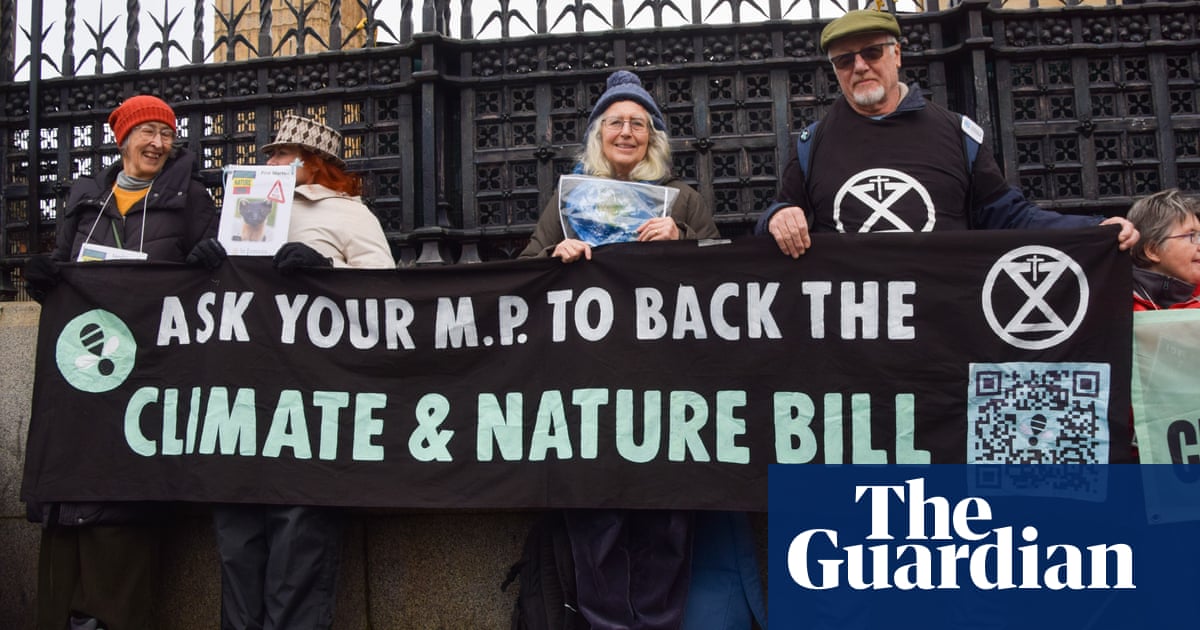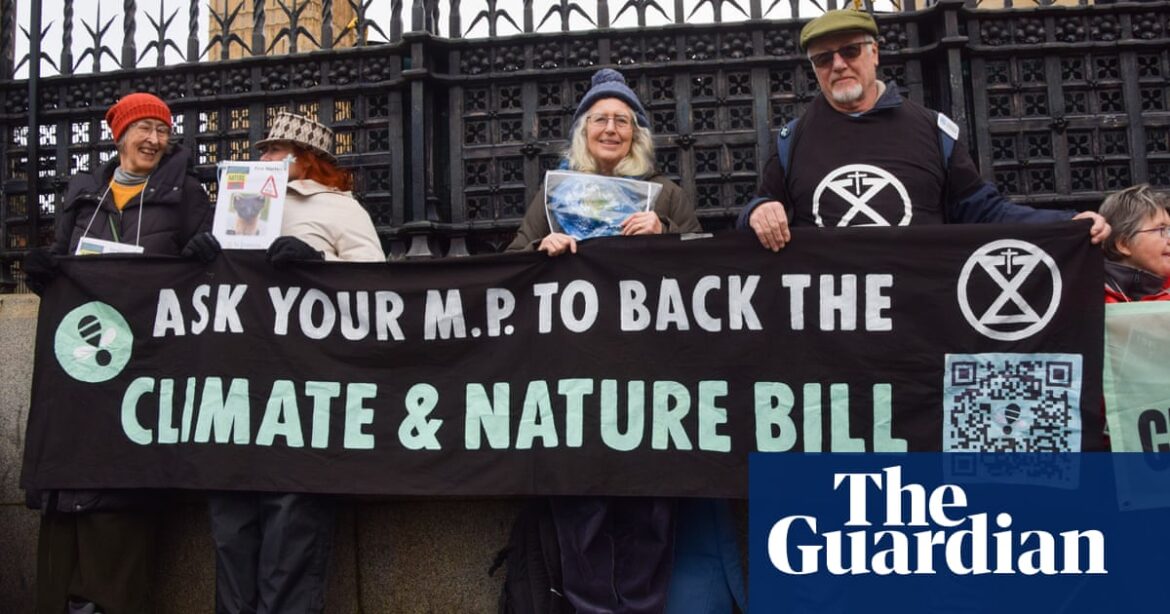
Ministers have seen off a bill that would have made the UK’s climate and environment targets legally binding, after promising Labour backbenchers that they would have input into environmental legislation.
The deal avoids an internal row over the bill, which was introduced by the Liberal Democrat MP Roz Savage but had support from dozens of Labour MPs.
Before Friday’s debate on the legislation, ministers insisted on the removal of clauses that would have required the UK to meet the targets it agreed to at Cop and other international summits. A Labour source said the bill as it stood would have forced the government to renegotiate its international climate change agreements.
At one point it was suggested that Labour MPs who voted for the bill would lose the whip, but a deal was struck late on Thursday and the bill’s Lib Dem and Labour sponsors agreed there would be no vote.
There is consternation among some in the Labour party about the chancellor Rachel Reeves’s recent comments that she would prioritise economic growth over net zero, with one Labour MP saying during the debate that “there is no growth on a dead planet”.
Supporters of the bill told the Guardian that Ed Miliband, the energy secretary, had made concessions to Labour backbenchers. These included making a statement on government progress towards international climate and nature targets within six months, a consultation with the bill’s supporters about forthcoming environmental legislation, and more meetings between Miliband and MPs who are concerned about the climate crisis.
The government came under fire from nature and climate groups this week after it was reported Reeves plans to announce the expansion of Heathrow and other airports, and Keir Starmer announced he would make it more difficult for campaigners to hold up developments for nature protection reasons.
Savage told the Commons on Friday that she had had “some fruitful conversations” with ministers but there was no “urgency of delivery” in the government on climate and nature targets.
Mary Creagh, the nature minister, said she agreed with putting in place “measurable, specific, time-bound targets with clear government plans to underpin them in order to achieve them”.
She committed to introducing some targets at a later date, improving reporting on consumption emissions, and including young people and the bill’s proposers in the formation of climate policies.
Citing Reeves’s comments on growth, Clive Lewis, the Labour MP for Norwich South and co-sponsor of the bill, said: “What kind of growth do we want? What are we growing? Are we growing pollution in our rivers? Are we growing roads that go through ancient woodlands? Yes, that is growth but not the kind of growth we want.
“I don’t want to see growth that comes at the cost of my daughter and her generation’s future. You cannot have growth on a dead planet, politicians need to understand that. You can’t say climate will come after growth, it is all interlinked.”
after newsletter promotion
The Green MP Carla Denyer, a co-proposer of the bill, criticised the decision to strike a deal with the government. “I understand the member for South Cotswolds has agreed not to push it to a vote today in exchange for just a meeting with the secretary of state for energy and net zero, and a video, with an agreement to work together but with no specific commitments,” she told the Commons.
This prompted shouts of outrage from Liberal Democrat MPs. Pippa Heylings, the Lib Dem MP for South Cambridgeshire, asked Denyer to “show respect to the huge effort” by Savage and said: “She did receive commitments that will enable us to move forward, not at the pace we want but together.”
Barry Gardiner, the Labour MP for Brent West, said the government was “going down absolutely the wrong road” with the Drax power station, which burns wood for energy.
“We should not be paying them at the moment – I think it is £9bn. The impact on biodiversity is disastrous … they say it is renewable but not in the timeframe we need for the 2050 targets,” Gardiner said. Miliband is due to make a decision on whether to grant the power station more subsidies.
Source: theguardian.com



